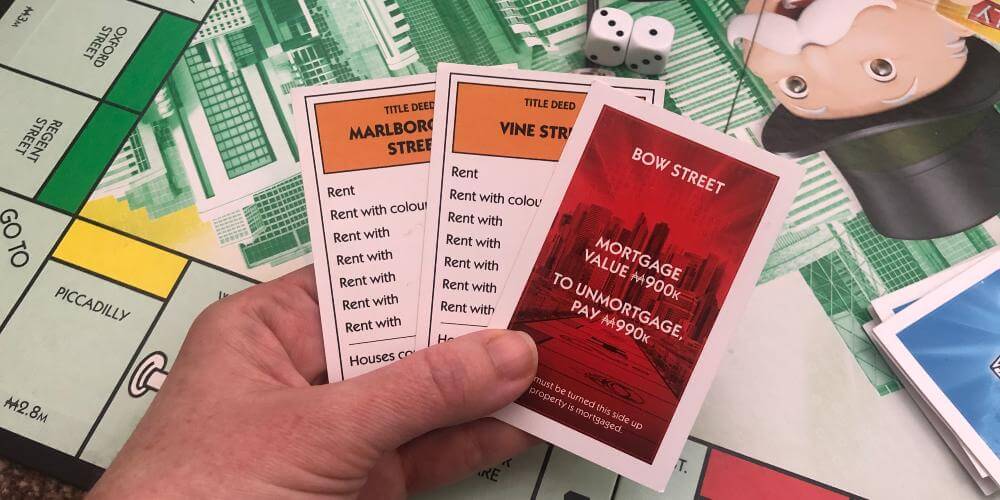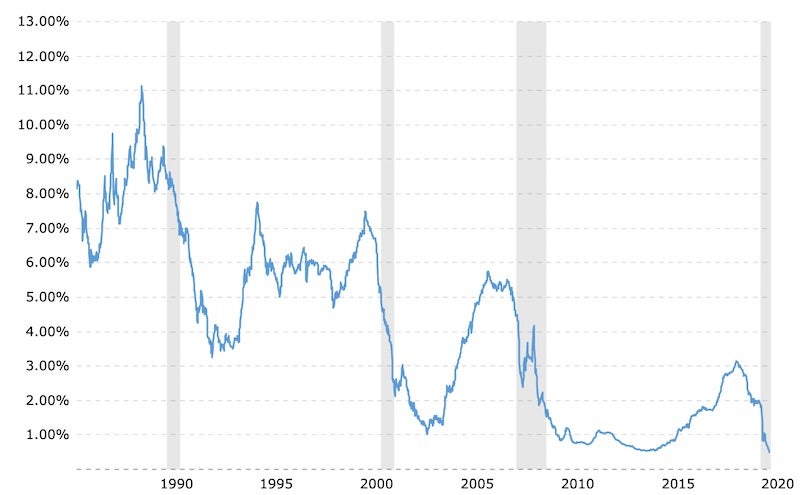After the first 5 years, we'll say the rate bumps up by simply a quarter percent each year. By the last year, your payment depends on $990, and you 'd pay $147,962 in interest over the life of the loan. Amount You Pay Above Original Purchase Cost $696$ 990 $307,962 $147,962 With a minimum deposit of just 3.

75% interest, your regular monthly payment would amount to $1,031. That includes $894 for primary and interest, plus $137 for MIP every month. You 'd also pay $3,378 in upfront MIP at closing and $128,774 in interest over the life of the loan. Quantity You Pay Above Original Purchase Rate $1,031 $374,366 $181,366 Let's say you put no cash down on a 30-year home loan at 3.
For this example, we'll assume your VA funding charge is $4,300 and you fund it into your loan since you do not have any extra cash on hand. That suggests your month-to-month payment would be $917 and your overall interest paid would come to $125,963. Quantity You Pay Above Original Purchase Price $917 $330,263 $130,263 If you put 5% down and finance the rest with a at 3.

5% (or $79/month) for this example. how common are principal only additional payments mortgages. Your total interest paid would pertain to $131,642 by the time your home mortgage is done, and your PMI would immediately drop off after a little over 8. 5 years. Amount Click for more You Pay Above Original Purchase Price $972 ($ 893 after PMI drops off) $339,779 $139,779 If you put 20% down on a 15-year fixed-rate home loan at 3.
That conserves you anywhere from $85,000 to $107,000 in interest charges alone! Envision what you could achieve with that kind of money in your pocket! Quantity You Pay Above Original Purchase Price $1,115 $240,624 $40,624 If we stack these five home loan choices against each other, it's easy to see where the expenses accumulate.
Now that you know the mathematics, don't get a house with http://louiseosl126.cavandoragh.org/little-known-questions-about-mortgages-what-will-that-house-cost a home loan that'll crush your monetary dreams. To help get the procedure began, link with our friends at. They're a relied on lender who really believes in debt-free homeownership. After that, make certain and get in touch with a who will keep your finest interests in mind and focus on serving you initially in your search for the best home.
Homeownership can be both satisfying and a terrific monetary choice for your future. However as anyone who has dipped their toes into the home-buying procedure understands, the pressure to discover and secure the "right" mortgage can feel frustrating, specifically if you're a novice house buyer. Throughout the early phases of the home-buying processmaybe while you're researching communities and schools, searching for homes, and nailing down the information of your budgetit would serve you well to do some research into the kinds of home mortgages readily available.
Some Known Facts About What Can Mortgages Be Used For.
As you have actually most likely noticed, there are several mortgage loan types readily available to debtors. The procedure of using for a home loan can be complicated, and one of the first steps for a property buyer is to choose which type of loan will finest serve his or her requirements. Some mortgage candidates are novice homebuyers, seeking to buy a home as a main residence, while others are skilled residential property buyers, with experience purchasing houses mostly for investment purposes in the form of rent income and possession appreciation.
Brace yourself, due to the fact that the procedure definitely needs you harness your best inner comparison buyer. You'll need to think about the ins and outs of each choice together with your personal and financial needs. To assist decide a bit much easier, we've compared the advantages and disadvantages of what happens if you stop paying on a timeshare each home loan type listed below.
The length of fixed rate loans can vary, however two of the most typical timespan are 15 and 30 years. A 30-year fixed-rate loan is the most common, though you can conserve a lot in interest if you decide for a 15-year loan. Monthly payments on a 15-year loan will be much greater than for a 30-year mortgage, so it's probably wise to devote only if you're confident that it operates in your budgeteven in the occasion of a financial emergency situation.
However, one drawback is that if you get a loan when rate of interest are high, you're locked into that higher rate for the entire term of the loanunless you refinance. If you have a high set rate mortgage in a low rate of interest environment, you might have the ability to refinance your home mortgage when rate of interest drop.
Adjustable rate mortgage (ARM) loans have a rate of interest that changes throughout the life of the loan as rates of interest vary. ARMs normally have a preliminary fixed-rate period of between 5 and ten years, throughout which the interest rate is repaired. ARMs are often expressed in 2 numbers (like 5/1 or 2/28), although those numbers don't follow one particular formula (they might represent years, months, number of yearly payments, and so on).
After the fixed-rate duration of an ARM, the rates of interest switches to variable. The variable rate is typically set based on a benchmark index rate that differs based on market conditions. Throughout the fixed-rate duration, the interest rate is usually lower than the interest rate on a standard fixed-rate loan.
An ARM may work best for someone who prepares to settle their home mortgage in 5 years or less, or is devoted to re-financing prior to the ARM's rate increase. Rate increases in the future might be dramatic, although there are limitations to the annual and life-of-loan changes, usually leaving adjustable-rate mortgage-holders with much higher month-to-month payments than if they had actually devoted to a fixed-rate home loan.
Getting The What Bank Keeps Its Own Mortgages To Work
A standard loan is a home loan originated by a bank or personal loan provider, and is not backed or guaranteed by the government. Banks and lenders typically look at credit scores and debt-to-income ratio, among other elements which will differ by loan provider, in evaluating traditional loan applications. Down payments (up-front money) are generally needed when getting a standard mortgage.
Conventional loans might have more stringent requirements than government-backed home mortgage, which can make them slightly more hard to qualify for than a government-backed loan. However, some customers might get traditional loans for a second home or financial investment property because a lot of government-backed home loans can only be used to acquire main homes (what is the best rate for mortgages).
Conventional fixed-rate mortgage normally need a minimum of a 620 FICO credit report and a deposit between 5% and 20% (newbie homebuyers might be able to put down as bit as 3% . If you put less than 20% down, however, private home mortgage insurance is requiredbut you have alternatives.
Month-to-month PMI requires to remain in place up until your loan-to-value ratio reaches 78%. (The loan-to-value ratio is the quantity of the home loan you are requesting relative to the assessed value of the house. The more cash you put down, the lower your loan-to-value ratio is, and vice-versa.) A range of residential or commercial property types would get approved for a traditional home loan.
Standard loans tend to have more stringent requirements for credentials and might require a higher down payment than government loans. For home purchasers looking for more versatile financing requirements, government-backed loans such as Federal Housing Administration (FHA) loans and Department of Veterans Affairs (VA) loans for veterans can be attractive options.